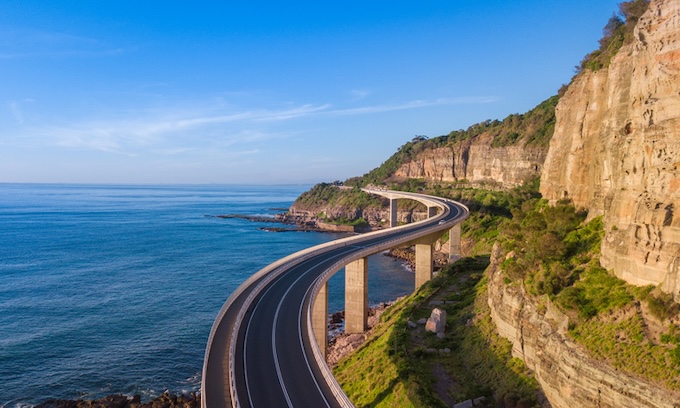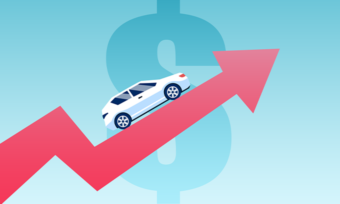Key points:
- Registration of all vehicles is a legal requirement before being permitted on public roads.
- The fees for registration renewal comprise the vehicle registration fee and motor vehicle tax.
- You cannot apply for or renew a NSW registration until you have purchased CTP insurance.
How is the cost of your NSW car registration calculated?
According to Transport for NSW, the cost of car registration in NSW depends on the following factors:
Type of registration
New:
You may need to apply for a new registration if:
- you buy a new vehicle that has never been registered
- you buy a used vehicle that is unregistered
- your registration has expired for more than three months.
Renewal:
In NSW, you will be sent a registration notice a few weeks before your registration expires, detailing how much it will cost to renew and how you can pay. You must renew your registration on or before the due date for the vehicle to legally be on the road.
You will also need an up-to-date CTP (compulsory third party) insurance policy and have your vehicle undergo a safety inspection report, known as a pink slip (generally required annually if the car is older than five years), before you can renew your registration.
Type of vehicle you’re registering
The cost of your registration will differ depending on the body type of the vehicle. The vehicle types listed on the Transport for NSW website are:
- Cars, station wagons and trucks
- Trailers and caravans
- Motorcycles
Purpose of use
If you plan to use your vehicle for business purposes, for example as a taxi or rental car, then the cost of your registration will generally be greater than if it is used for private purposes. This is because vehicles used for business purposes attract a higher vehicle tax, which is included in the cost of your registration.
Market value/purchase price of vehicle
According to the NSW government, you will generally have to pay stamp duty on your motor vehicle when you’re registering a new vehicle for the first time or transferring a vehicle’s registration to another person. Stamp duty is the tax paid on the application documents required to register a motor vehicle in NSW.
The amount of stamp duty payable for your vehicle in NSW is based on the market value or purchase price of your car (whichever is higher). The stamp duty is then included in the cost of your registration. In other words, the higher the value or purchase price of your car, the more you will pay in stamp duty, which will push up the price of your registration.
There are circumstances where you may be able to apply for an exemption from having to pay your vehicle’s stamp duty. Stamp duty does not apply to registration renewals.
Tare weight
Tare weight is the weight of an empty standard vehicle with all of its fluids and 10 litres of fuel in the tank. Transport for NSW uses a motor vehicle’s tare (unladen) weight to determine the amount to charge for motor vehicle tax. This motor vehicle tax is included in the cost of your registration. The more your car weighs, the higher the vehicle tax and therefore the more expensive your car registration will be.
The amount of vehicle tax payable by tare weight depends on whether you are using a vehicle privately or for business use, with a full breakdown of fees available on the NSW government website.
Registration period
When registering a vehicle, you generally have choices around the amount of time you want to pay for.
Three-month registration is available for:
- trailers
- heavy vehicles – over 4.5 tonnes GVM.
Six-month registration is available for:
- light vehicles – up to 4.5 tonnes Gross Vehicle Mass (GVM)
- heavy vehicles – over 4.5 tonnes GVM
- trailers
- motorcycles.
Compare car insurance policies
If you’re comparing car insurance policies, the comparison table below displays some of the policies currently available on Canstar for a 30-39 year old male seeking comprehensive cover in NSW without cover for an extra driver under 25. Please note the table is sorted by Canstar Star Rating (highest to lowest) followed by provider name (alphabetical) and features links direct to the providers’ websites. Consider the Product Disclosure Statement (PDS) and Target Market Determination (TMD), before making a purchase decision. Contact the product issuer directly for a copy of the PDS and TMD. Use Canstar's car insurance comparison selector to view a wider range of policies. Canstar may earn a fee for referrals
How much does rego cost in NSW?
The cost of new or renewed registration depends on a number of factors, as mentioned above. For more of an idea on the specific registration costs on your new or existing vehicle, Service NSW has a calculator that can show you estimated annual, half-yearly and quarterly charges.
What is included in car registration fees in NSW?
The fees for a new registration are made up of four components:
- Vehicle registration fee (which is currently $79 annually for all vehicles)
- Motor vehicle tax
- Plate fee
- Stamp duty
The fees for registration renewal comprise the vehicle registration fee and motor vehicle tax.
You can use the NSW vehicle registration calculator to help you estimate the costs of registering a vehicle.
Other potential fees
There are other potential fees involved in the registration of your car that you may be required to pay, depending on your circumstances. At the time of writing, these include:
Registration transfer fees
Transfer fee within 14 days of acquiring the vehicle: $39
Transfer fee after 14 days of acquiring the vehicle: $182
Registration cancellation fee
Cancel registration fee: $35
Replacement certificate of registration
Replacement fee: $26
Other plate fees
Standard number plates: $55
Personalised number plates: varies depending on style and content.
Note: The fee for new plates is included in the cost for a new car registration.
Safety checks and inspections
Pink slip: $49 (light vehicle)
Most light vehicles (passenger cars) more than five years old require a safety check (called a pink slip) each year before you can renew your NSW registration. Your registration renewal notice will state whether you need this safety check.
These checks must be performed at an Authorised Inspection Scheme station and results will be sent to Transport for NSW electronically.
AUVIS: $78 (light vehicle)
An Authorised Unregistered Vehicle Inspection Scheme (AUVIS) inspection (known as a blue slip) ensures that vehicles not registered in NSW meet safety requirements and design and identity standards.
Inspections carried out by AUVIS include:
- record adjustments
- clearance of design based defect notices
- design, identity and safety checks
- written-off vehicle checks
CTP Insurance
Compulsory Third Party (CTP) or Green Slip car insurance is a type of car insurance that protects drivers against compensation claims made if you were to hurt or fatally injure someone in a road traffic accident.
You cannot apply for or renew a NSW registration until you have purchased CTP insurance. Most insurers send your CTP insurance details to Transport for NSW electronically so they are aware of your purchase when you apply for registration.
The period of cover of your CTP insurance policy must match your registration term. For example, a 12-month registration requires a 12-month CTP policy.
Prices for CTP insurance will vary between insurers, so it’s a good idea to compare prices and features of each policy before making a decision. The State Insurance Regulatory Authority (SIRA) has an online calculator you can use to get a CTP quote comparison for all NSW providers for the most common vehicle types and circumstances.
Compare Comprehensive Car Insurance
How could you save on your registration in NSW?
You may be able to save on your vehicle’s registration fees by considering the following tips, depending on whether you are renewing your car registration or buying a new vehicle:
- Opting for standard rather than special (personalised) number plates.
- Checking to see if you qualify for a registration concession.
You may be eligible for a concession if you’re a NSW resident with a:
- current Pensioner Concession Card (PCC), issued by Services Australia (Centrelink) or the Department of Veterans’ Affairs showing a NSW address
- people with a totally and permanently incapacitated (TPI) or extreme disablement adjustment (EDA) Department of Veterans’ Affairs Gold Card
- primary producers (a person or incorporated body who cultivates their own or someone else’s land for their own benefit)
- apprentices (If you’re a first or second year apprentice registered with the NSW Department of Education, you can apply for a registration rebate to help you with the costs of registering your vehicle)
If you haven’t purchased your vehicle yet, you could consider the following:
- Purchasing a vehicle with a smaller tare weight. The lower the tare weight of your car the less tax you are required to pay, which potentially means a cheaper registration.
- Purchasing a lower-value vehicle. Lower value cars cost less to register than those of a higher value.
- Purchasing an energy-efficient vehicle that qualifies for the lower tax category. Lower taxed vehicles must meet certain criteria to be eligible for this energy-efficient category. This criteria is outlined on the Transport for NSW lower-taxed vehicle registration page.
- Save 15%^ on your first year’s premium when you purchase a new Car Insurance policy online.
- 24/7 Phone & Online Claims.
- Budget Direct - Insurance Solved.
- Insurance that's a bit more you-shaped.
- Canstar's 2024 Most Satisfied Customers Car Insurance - National Award.
- Lodge a Claim 24/7 with our Advisors
- Flexible cover before, 24/7 claims after.
- Save $75 on new Comprehensive car insurance online.
- Conditions apply.
- Option To Pay Monthly. Save On Your Premium By
- Increasing Your Basic Excess (Within A Given Range)*
- Lodge A Claim Online 24/7
- No age-based excess.
- No excess on your first covered windscreen repair.
- Canstar 2025 Outstanding Value Car Insurance Award.
Cover image source: Ross Tomei/istockphoto.com








